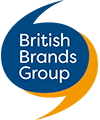After an early initiative driven by Haleon, PA Consulting and PulPac have formed the Blister Pack Collective – a new development program which is aimed at reducing plastic usage and driving circularity for tablet blister packaging, through the adoption of Dry Molded Fibre (DMF) technology.��
As a founding member of the Blister Pack Collective, Haleon are ready to take the next step to partner and collaborate with organisations across all sectors to develop new sustainable packaging solutions which reduce the environmental impact of consumer products.��
The Blister Pack Collective utilises DMF technology to develop blister packs that eliminate or minimise the use of plastics in over-the-counter prescription drugs and nutraceuticals. DMF technology significantly reduces the use of plastics and water, cutting carbon emissions. The process is designed to be high speed and low cost, using a proprietary process to create highly versatile tablet arrays that match the pitch design and tablet count of commodity PVC, providing a like-for-like, scalable solution. The adoption of Dry Molded Fiber tablet packs could help remove 100,000 tonnes of plastic medicine packaging used every year.��
Alex James Orchard, Head of R&D Packaging at Haleon, said: “Haleon intends to take a lead role in creating a future for consumer health packaging which is more sustainable and easier to use by all of our consumers. Through this initiative, we’re looking to partner and collaborate with other brands across consumer health and other sectors to develop new packaging solutions using alternative materials which help drive circularity.”��
This is an example of why brands and brand-led organisations are critical to accelerating the sustainability agenda through driving innovation and initiatives with scale. It is hard to imagine that, in fullness of time, the whole healthcare industry will not move away from foil and plastic blisters. What is less certain is the time scale. By making such a clear public statement, Haleon, and their brands, are committing to being in the vanguard of this change. Yes, there is some self-interest in this. It is a good PR story, and it will briefly differentiate their brands, but it is unlikely this is their primary motivation. Haleon is a brand-led, consumer facing business and they KNOW this is what the users of their fabulous portfolio of brands want and expect. They are responding to a latent need. The knock-on effects could be significant. All their branded competitors, who will already be considering similar initiatives, might accelerate their implementation plans. Even more significantly, own-label suppliers and retail brands will need to consider it too. It is almost impossible to imagine these players leading this at scale, but where brands go… private label will always follow. We love this, well done Haleon, and we hope it pays back!
��

